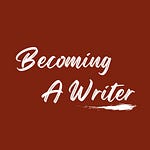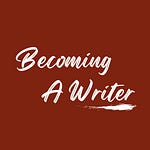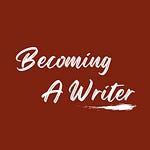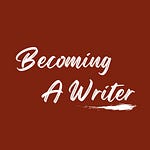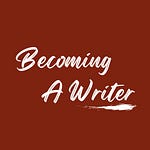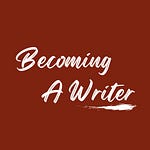Hello, my writer friends! Rubina here. For our eighth conversation, we are going to talk about why it is important that we write for ourselves first.
When I started my writing journey, many articles, essays, videos and courses told me I should write with the reader in mind. I should have the image of an ideal reader or target reader in my head whenever I sit down to write.
When I tried to imagine my target reader, I failed. I failed because I, myself, am not an ideal reader for my favourite authors.
I am an avid reader of cosy mystery. I thoroughly enjoy myself in thrillers and suspense. I don't mind action or a sprinkle of science fiction (no robots or spaceships for me, thank you). I love going back in time with historical fiction (except for the war stories; they break my heart). And yes, I believe in rebirths, ancient mysteries, supernatural, and superheroes.
So now, if I were to imagine Agatha Christie doing one of those ideal reader worksheets, she wouldn't put my name on there. And yet, I devour her books like a slice of Belgian chocolate cake.
We are humans. We have a myriad of likes and dislikes. And therefore, we are the target audience for a multitude of things.
We don't just like one thing. We like many. And over time, age and experience, our choices change. I was once an ideal reader for cosy mysteries. Now, I am also an ideal reader of spirituality and philosophy. I am evolving and growing, and so is my taste.
So, to look for an ideal reader was futile for me.
It was a headache because how would I know if a specific 24-year-old Sophia would like my detective novel. And it was heartache because in trying to find my ideal reader, I was wasting time that could have been used to write my book.
So, I discarded that advice and wrote for myself. I wrote what I felt like writing. Turns out, readers liked this version of me more.
Writing for yourself first works because you write from your heart whatever you want to write. And when you write from your heart, it finds hearts that resonate with you.
When I wrote with the ideal reader in mind, I would get busy catering to their whims and fancies. Which, by the way, I have no control over. But when I wrote what my heart wanted to say, readers came back to me and told me how much they felt understood.
Isn't that the feeling we all want when reading something? To feel like someone out there gave words to our thoughts and feelings?
Author Audrey Niffenegger didn't write The Time Traveler's Wife because she found the right target audience who would read her romantic science fiction. She wrote it as a metaphor for her failed relationships.
Queen of Crime, Agatha Christie, didn't write The Mysterious Affair at Styles, bringing the egg-head Belgian detective Hercule Poirot to life, because she saw the gap in the market. Agatha's sister bet that Agatha could never write a good detective story.
Author Elizabeth Gilbert didn't write her Eat Pray Love as a guide to help people find themselves. The author was journaling about her travels and how she realised that she missed out on loving herself.
Books like these make a genuine impact because the readers find themselves in them. For that to happen, we writers must first find ourselves in our books. And that happens when, contrary to popular belief, you write for yourself first.
I once had a conversation with my painter-sketch artist uncle, where he was explaining his process and preparation for creating sketches for an exhibition he had in a couple of months.
During that conversation, I realised that my uncle never sketches with the audience in mind. Unless commissioned, he always sketches or paints what he feels inspired to. This made me slap myself on the back of my head.
Artists, true artists, create what they want to create. What their artist soul wants to create. They create what brings value to them, what brings joy to them. They create what gives them a space to self-explore, self-express and self-understand.
When they do that, the right audience also finds value, joy and solace in their work. Most importantly, they will find themselves in that work of art as well.
When we worry about what is trending or what will go viral, we end up creating work that is bland, easily forgettable, and easily replaceable. But when we create from our heart, it'll touch hearts beyond your years and your imagination.
Forget about the "ideal" reader. Write what your heart wants to write. And you'll find the right reader.
Well, that's it for today. Next time we meet, we'll talk about how curiosity can help us out in our writing.
Until then, keep writing, my friend.
📚 My non-fiction book for writers -
Soul Writer vs. Social Writer - Find Out Which One Are You?, Why Is It Important, and Finding Your Sweet Spot.
Amazon US | Amazon UK | Amazon India
🏡 My homes on the internet -
Spotify | Apple Podcast | Amazon Music
YouTube | YouTube Music | Instagram (Podcast) | Substack
A Rubina’s Bojra Production
Directed By: Rubina Gauri Gomes
Produced By: Rubina Gauri Gomes, Books She Has Read, And Life Lessons She Has Learnt
Written By: Rubina Gauri Gomes
Host & Voice Talent: Rubina Gauri Gomes
Music by: Happy Lazy Loop by Serge Quadrado (At Adobe Stock)
Audio-Visual Edited By: Rubina Gauri Gomes
Marketed By: Rubina Gauri Gomes
Fueled By: Coffee ☕
Made With Love, For Fellow Writers And Creatives.🤍






